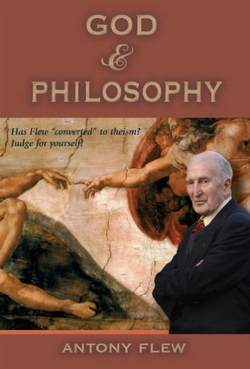An audit of the case for Christian theism
by Antony Flew
 In the course of my own intellectual, philosophical, and spiritual development, the issue of the Christian god—or God, if you prefer (conceding the initial cap as a means of indicating its monotheistic nature)—has been central. Partly because I was raised to believe in God and then partly because my libertarian political convictions emerged so strongly during my late teens… and they revolved about the writings of Ayn Rand (a quintessential atheist). [You can read Nathaniel Branden’s short column in the May 1962 Objectivist newsletter, which I’ve uploaded here as a jpeg file, which gives perhaps the most concise demolition of the logic behind the concept of God, at least as a ‘first cause.’]
In the course of my own intellectual, philosophical, and spiritual development, the issue of the Christian god—or God, if you prefer (conceding the initial cap as a means of indicating its monotheistic nature)—has been central. Partly because I was raised to believe in God and then partly because my libertarian political convictions emerged so strongly during my late teens… and they revolved about the writings of Ayn Rand (a quintessential atheist). [You can read Nathaniel Branden’s short column in the May 1962 Objectivist newsletter, which I’ve uploaded here as a jpeg file, which gives perhaps the most concise demolition of the logic behind the concept of God, at least as a ‘first cause.’]
God and Philosophy was one of the key books that I read on the subject of theism vs. atheism in the early 70s. Along with the classic out-of-print tome by Homer W. Smith, Man and His Gods (1952)—and I had heard of George Smith’s The Case Against God a few years later, as well—G&P gave pretty much the whole picture of why the concept of God (AS DEFINED BY THE CONVENTION OF THE BOOK OF COMMON PRAYER) is a nonstarter. The parenthetical phrase is extremely important, it’s the definition of terms that is necessary before any fruitful argument or discussion can follow. So the standard definition of God that Flew stipulates is as follows: Continue reading
